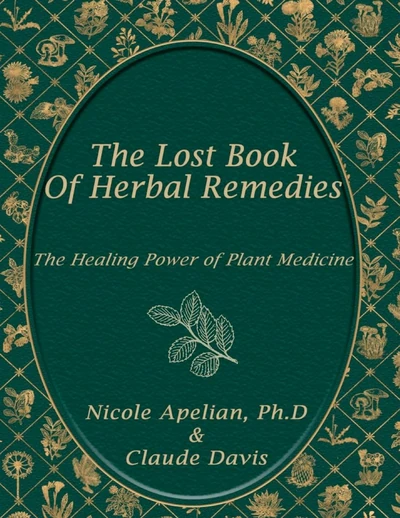Castor Oil Side Effects and Precautions: Why is Castor Oil Bad?

Have you ever reached for a bottle of castor oil, hoping for a quick fix for constipation or dreaming of luscious, long locks? Castor oil has been a popular remedy for generations, gracing medicine cabinets and beauty routines worldwide. From soothing skin to promoting hair growth, its uses seem endless. However, many people may wonder, “Why is castor oil bad?”. Behind this seemingly harmless oil lies the potential for side effects, such as digestive discomfort, skin irritation, or allergic reactions, that many users might not know about.
This blog post will explore the lesser-known aspects of castor oil. The side effects, and the precautions you need to take. We’ll uncover potential risks, discuss safe dosage guidelines, and help you make informed decisions about incorporating castor oil into your life. Buckle up as we navigate the world of castor oil, separating fact from fiction and equipping you with the knowledge to use it safely and effectively.
Understanding Castor Oil
Castor oil is a pale yellow liquid made from castor beans. Castor beans come from the Ricinus communis plant, found in the East. The FDA classifies castor oil as generally recognized as safe and effective (GRAS). People have used castor oil for a long time to treat different problems. You can find it in cooking oils, medicines, skincare products, and massage oils. Castor oil is popular because it has antibacterial and anti-inflammatory properties. It’s also a powerful laxative that can help with constipation.
The main healing agent in castor oil is ricinoleic acid, which makes up about 90% of the oil. Ricinoleic acid is released when castor oil is broken down in the intestine. This ricinoleic acid acts on smooth muscle cells, making the intestines contract and move things along. That’s why castor oil is so good at relieving constipation.
While castor oil is generally safe for adults to use as a laxative, it is not recommended for pregnant or lactating women because of certain chemical compounds. It’s important to remember that the FDA only approves castor oil as a laxative. Other uses, like inducing labor or treating skin conditions, are not FDA-approved.
Short-Term Side Effects: What Can Happen?
Castor oil is a powerful natural remedy, but like all powerful things, it needs to be handled with care. Let’s look at some common short-term side effects you might experience when using castor oil.
- Feeling Queasy? It Could Be Nausea: It’s pretty common to feel a bit nauseous after taking castor oil, especially if you take too much or aren’t used to the taste and oily texture. If this happens, it’s usually not a big deal and should pass quickly. However, if the nausea is severe or doesn’t go away, it’s best to check with your doctor. Castor oil is sometimes used as a preparation for procedures like a colonoscopy, but many people have trouble tolerating its taste.
- Skin Irritations: Castor oil is generally safe for the skin, but some people might experience irritation or allergic reactions after using it topically. This could show up as redness, hives, or itching. It’s always a good idea to do a patch test before applying castor oil to a larger area of skin, especially if you have sensitive skin.
- Ouch! Muscle Cramps: Muscle cramps, especially in your stomach or intestines, can be another unpleasant side effect of castor oil. This is more likely to happen if you’ve taken a large dose or taken it on an empty stomach. Castor oil works by making the muscles in your intestines contract, which can lead to cramping. For this reason, pregnant women and those who are menstruating are often advised to avoid using castor oil as a laxative.
- Feeling Dizzy? If you’ve taken more castor oil than recommended, you might experience dizziness. In rare cases, people have reported fainting, shortness of breath, and even hallucinations. While these severe reactions are uncommon, it’s crucial to stick to the recommended dosage and seek medical advice if you experience any unusual symptoms.
Remember, these short-term side effects are usually mild and go away on their own. However, it’s always best to listen to your body and talk to your doctor if anything concerns you.
Long-Term Worries: Castor Oil’s Serious Side
While castor oil might seem like a natural wonder, there are some long-term effects and serious concerns you need to be aware of. These concerns are particularly important for pregnant women, new mothers, and children.
- Babies and Castor Oil: A Dangerous Mix: In some cultures, castor oil is given to infants shortly after birth, but this practice can be incredibly dangerous. Giving castor oil to babies can lead to serious problems like intestinal damage, diarrhea, pneumonia, and even malnutrition. It’s best to avoid giving castor oil to babies and young children altogether.
- Pregnancy and Castor Oil: Proceed with Caution: Castor oil has a long history of being used to induce labor, but this practice can be risky. The ricinoleic acid in castor oil can stimulate contractions in the uterus, potentially leading to premature labor. Doctors no longer recommend castor oil for labor induction in high-income countries. However, it is still used by the general public in low-resource settings. Pregnant women should avoid using castor oil unless specifically directed by their doctor.
- Too Much of a Good Thing: Castor Oil Overdose: Like any medication, taking too much castor oil can have serious consequences. Overdosing on castor oil can lead to a whole host of unpleasant symptoms, including severe diarrhea, chest pain, shortness of breath, and muscle cramps. In rare cases, it can even cause hallucinations and irregular heartbeat. These symptoms occur because overusing castor oil can disrupt the balance of electrolytes in your body, leading to problems with your heart rhythm. It’s essential to stick to the recommended dosage and seek medical attention if you experience any severe side effects.
- Castor Oil and the Cathartic Colon: There’s been some debate about whether long-term use of stimulant laxatives like castor oil can lead to a condition called “cathartic colon.” This condition involves changes in the colon that make it harder to have bowel movements without laxatives. However, newer research suggests that a cathartic colon might not actually be a real condition.
While castor oil has many potential benefits, it’s crucial to be aware of its potential downsides. Using castor oil responsibly and consulting your doctor, especially if you’re pregnant, breastfeeding, or have young children, is the best way to ensure your health and well-being.
Castor Oil: Interactions and Precautions

While castor oil is generally considered safe, it’s crucial to understand potential interactions and take necessary precautions to ensure its safe use.
- Drug Interactions: Limited Information Available: There’s limited information available on specific drug interactions with castor oil. Some sources suggest that combining castor oil with other stimulant laxatives could increase the risk of adverse effects, especially gastrointestinal complications. Always inform your doctor about all medications you’re taking, including prescription drugs, nonprescription drugs, and herbal supplements, to avoid potential interactions.
- Pregnancy and Breastfeeding: Due to its potent stimulant laxative effect, castor oil is generally not recommended during pregnancy. It may induce premature uterine contractions and labor. There is insufficient data on castor oil’s excretion into breast milk and its safety for nursing mothers and infants. Homeopathic preparations of castor oil are sometimes used to reduce milk flow or as a galactagogue, although no scientifically valid clinical trials support these uses. Because information is limited, other laxatives may be preferred during breastfeeding.
- Allergies: Before taking castor oil, inform your doctor about any known allergies, especially to plant oils or any part of the castor oil plant. A patch test is recommended before applying castor oil to the face or skin to rule out allergic reactions.
- Pre-existing Medical Conditions: Be sure to tell your doctor about any pre-existing medical conditions, especially those affecting the heart, brain, lungs, and other vital organs. Castor oil may worsen certain health conditions or interact with medications used to manage them.
- Timing of Intake: Castor oil typically produces results within 2 to 6 hours, so it’s generally not recommended to take it late in the day. Taking it earlier can help avoid nighttime discomfort and sleep disruptions caused by its laxative effects.
- Choosing Castor Oil: When using castor oil topically, opt for cold-pressed organic oil without additives. This ensures purity and minimizes potential skin irritations caused by added chemicals or impurities.
Remember, using castor oil responsibly and consulting your doctor, particularly if you’re pregnant, breastfeeding, or have young children, is the best way to ensure safe and effective use.
VI. Safe Dosage and Administration: Navigating Castor Oil Safely
Determining the right amount of castor oil to take can be tricky. Different factors, like age and purpose, play a role in finding a safe and effective dose. Let’s explore some general guidelines for safe castor oil use, but always remember to consult your doctor for personalized recommendations.
- Adults and Teens Over 12: For adults and children over 12 years old, the generally safe maximum dose is 1 to 4 tablespoons (15 to 60 mL) in a single daily dose. Taking more than this could increase the risk of side effects.
- Children 2 to Under 12 Years: For children in this age range, the safe maximum dose is generally lower: 1 to 3 teaspoons (5 to 15 mL) in a single daily dose. Always measure carefully using a proper measuring device to ensure the correct dosage.
- Young Children Under 2: It’s best not to give castor oil or its supplements to children under 2 years old. Their bodies are still developing, and castor oil’s potent effects could be harmful. Always talk to your doctor about safe alternatives for constipation in young children.
- Castor Oil for Eyes or Skin: When using castor oil for eyes or skin, there’s no official safe dosage established. It’s always best to consult a doctor before topical use and avoid using more than 2-3 drops to minimize potential irritation.
- Oral Administration Tips: Taking castor oil with juice can help mask its somewhat unpleasant taste. It’s usually recommended to take castor oil on an empty stomach for faster results. However, this could increase the likelihood of experiencing side effects like stomach cramps.
- Important Considerations: Never take castor oil at bedtime as it can act quickly. Don’t use castor oil for more than a week without seeking medical advice. If you experience abdominal pain, nausea, vomiting, or rectal bleeding, stop using castor oil and consult your doctor immediately. Always keep castor oil out of the reach of children.
It’s important to note that the provided information is intended for general knowledge and should not be considered medical advice. Individual responses to castor oil can vary, and it’s crucial to consult your doctor for personalized recommendations and to address any concerns or questions you may have.
Castor Oil Supplements: Points to Ponder
Castor oil supplements, typically found in gelatin capsules, are often marketed for hair loss and skin conditions like dryness. However, the sources raise several concerns regarding these supplements:
- Potential for Higher Contamination: While there isn’t extensive research on castor oil supplement safety or toxicity, anecdotal evidence suggests a risk of higher contamination levels compared to liquid castor oil.
- Presence of Toxic Castor Beans: A significant concern is the possibility of castor oil supplements containing castor beans, which are highly toxic due to the presence of ricin.
- Similar Side Effects to Castor Oil: Overconsumption of castor oil supplements can lead to side effects similar to those of liquid castor oil, such as:
- Abdominal cramps
- Nausea
- Diarrhea
- Uterine contractions
- Allergic reactions
- Abdominal pain
- Safety for Pregnant and Lactating Women Unclear: Due to the lack of established safety data, pregnant and lactating women are advised to avoid these supplements.
- Increased Allergy Risk: Castor oil supplements often combine castor oil with other natural herbs or oils, such as olive oil, which may heighten the risk of allergic reactions.
It is important to consult a doctor before using castor oil in any form, including supplements, to ensure safety and appropriate dosage.
Conclusion: Balancing Castor Oil’s Potential and Risks
While castor oil has a long history of traditional use and boasts potential benefits like constipation relief and skin moisturization, the sources highlight the importance of approaching its use with caution and awareness.
- Acknowledge Potential Benefits: The sources acknowledge certain benefits associated with castor oil. It’s recognized as an effective stimulant laxative for relieving occasional constipation. It also possesses anti-inflammatory and antimicrobial properties that might benefit the skin.
- Highlight Potential Side Effects: Both internal and topical castor oil use can lead to various side effects, ranging from mild to severe. Common side effects include nausea, vomiting, diarrhea, abdominal cramps, skin rashes, dizziness, and muscle cramps.
- Emphasize Safety Concerns: Certain groups, including pregnant and lactating women, newborns, and young children, are particularly vulnerable to castor oil’s adverse effects. Castor oil’s potential to induce labor and cause harm to infants necessitates extreme caution in these populations.
- Address Castor Oil Supplements: Concerns about contamination and the potential presence of toxic castor beans in supplements require careful consideration. The lack of research regarding their safety further emphasizes the need for professional guidance before their use.
- Stress Importance of Professional Guidance: The sources strongly advocate consulting a doctor before using castor oil in any form. A healthcare professional can provide personalized advice on dosage, safety considerations, potential interactions, and the appropriateness of castor oil based on individual circumstances.
- Promote Informed Decision-Making: By understanding castor oil’s potential benefits and risks, individuals can address their concerns as to why castor oil is bad and make informed decisions about its use. Open communication with a doctor and careful consideration of individual health factors are crucial for maximizing benefits and minimizing harm.
Source:
- Castor Oil
https://www.ncbi.nlm.nih.gov/books/NBK551626/ - Castor oil overdose
https://medlineplus.gov/ency/article/002768.htm - 9 Side Effects Of Castor Oil You Should Be Aware Of
https://www.stylecraze.com/articles/side-effects-of-castor-oil-you-should-be-aware-of/ - What is castor oil, and what is it used for?
https://www.medicinenet.com/castor_oil/article.htm - Castor Oil
https://www.rxlist.com/castor_oil/generic-drug.htm - Castor Oil – Uses, Side Effects, and More
https://www.webmd.com/drugs/2/drug-278/castor-oil-oral/details
Trust in your purchase:
Every product featured on our site has been carefully researched and selected based on quality, customer ratings, and positive reviews to ensure you receive excellent value for your money.
Please note:
This post contains affiliate links. If you make a purchase through these links, we may earn a small commission at no additional cost to you. This helps support our site and allows us to continue bringing you valuable content. Thank you!
Thank you for your precious time spent with AestheticThrive.



